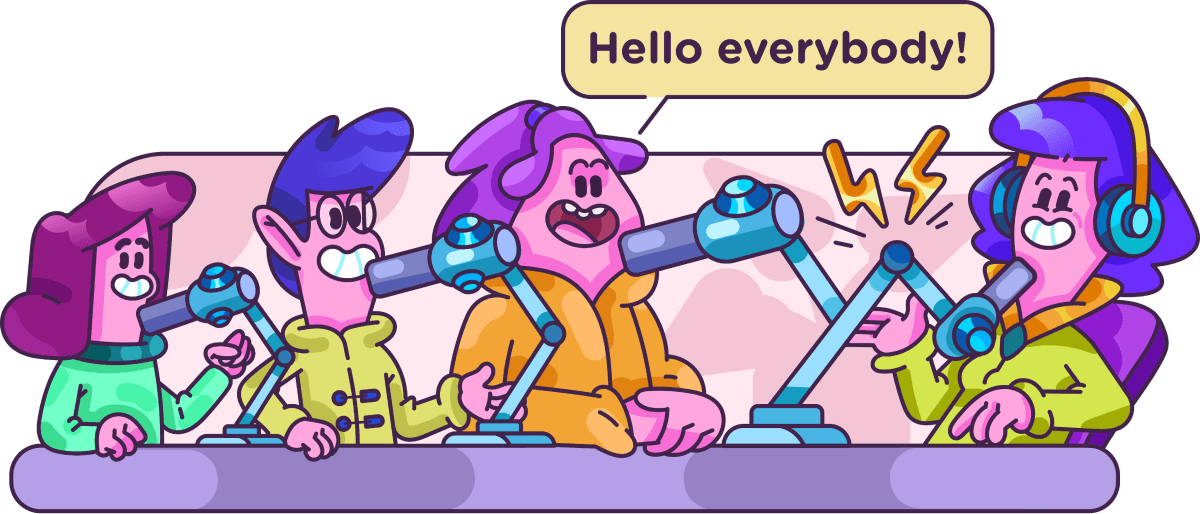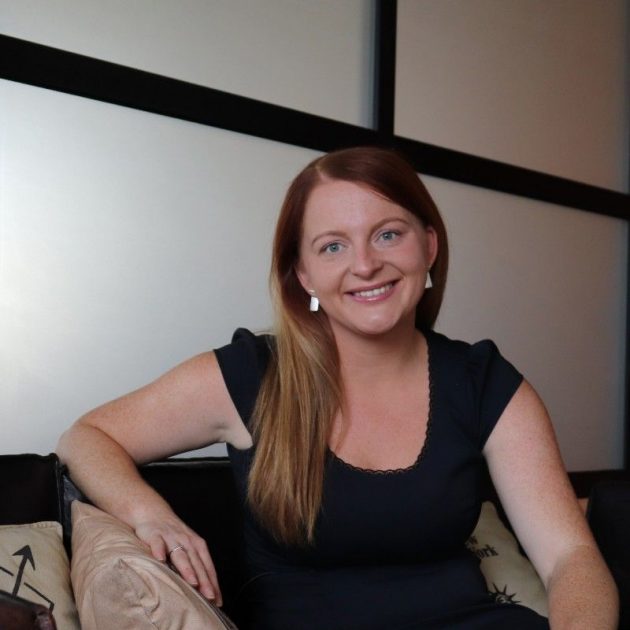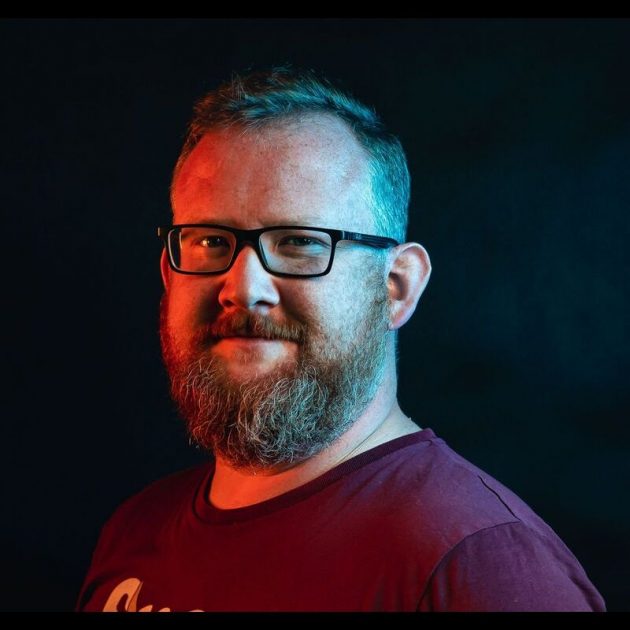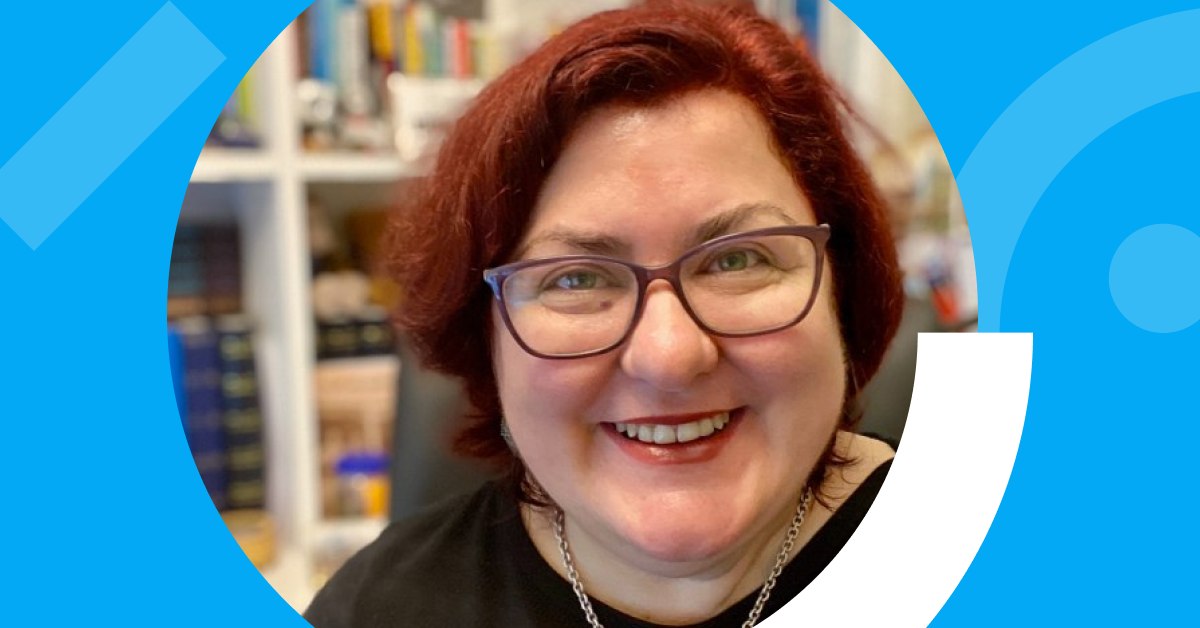How time tracking helps Clockify users improve work
Last updated on: January 10, 2023
Have you ever wondered how time tracking can improve your work habits?
Or, how time tracking can enhance productivity and creativity?
To get you some answers, we reached out to those who track their working hours daily — our respected customers. Namely, we talked with:
- Filip Kubicki — COO at Riotters,
- Maria Bayley — Marketing Manager at WeComm and Brand Manager at Streeem,
- Cristiana Caserta — Book Advisor,
- Carolin Hyzyk — Director & Head of Business Development at Keen Ltd,
- Mordechai Lewis — OCR Document Specialist, and
- Kevin Oliveira — CEO at Kfactor Marketing e Design.
Since they use Clockify to track their time, tasks, and projects, we were curious to find out how time tracking helps them with their work.
And, of course, we wanted to hear more about their impressions of Clockify:
- How they discovered Clockify,
- What features do they find most practical for work, and
- If there are any additional benefits of using our time tracker.
So, read on, because we’re more than happy to present these incredible interviewees and share their stories with you.

Table of Contents
A brief introduction to our interviewees
Now, let’s introduce you to our interviewees in more detail.
In general, they come from creative fields such as marketing, design, and book advisory, as well as OCR (optical character recognition) technology.
Filip Kubicki — COO at Riotters
Our interlocutor Filip Kubicki, a COO at Riotters — a full-service digital design studio — shared with us how this company uses Clockify for work.
Since they offer services such as branding, development, and illustration, Riotters helps entrepreneurs grow their brands.
This design studio is based in Poland.
Maria Bayley — Marketing Manager at WeComm and Brand Manager at Streeem
Our next interviewee is Maria Bayley — a Marketing Manager at WeComm. WeComm is a recruitment consultancy located in the UK.
Maria is also a Brand Manager at Streeem. As she says, she is passionate about all things brand and visual, and she’s a wine enthusiast.
Cristiana Caserta — Book Advisor
We also talked with Cristiana Caserta — a Book Advisor, a digital teacher, and a research and experimentation activist.
Cristiana is based in Palermo, Italy.
Carolin Hyzyk — Director & Head of Business Development at Keen Ltd
Aside from Italy, we have an interlocutor based in another Mediterranean country — Malta.
The name of the company is Keen, and we talked with Carolin Hyzyk — a Director and Head of Business Development.
Keen is a company that offers digital solutions, such as web design and development, SEO, and link building.
Mordechai Lewis — OCR Document Specialist | Software Consultant | Tech Consultant | Computer Information Researcher
Also on our list of interviewees is Mordechai Lewis, who describes himself as a tech enthusiast because he helps people choose the best software for their needs.
Mordechai also works as an OCR Document Specialist, and he believes that time tracking plays a vital role in the OCR field.
Kevin Oliveira — CEO at Kfactor Marketing and Design
Last but not least, Kevin Oliveira is the CEO of Kfactor — an agency that offers marketing and design services.
Apart from marketing and design, Kfactor provides its customers with services such as publicity, social media, branding, and strategic marketing.
The company is based in São Paulo, Brazil.
The story of how our interviewees became our customers
As you can see, the people we introduced in the previous section come from various worldwide locations. But, what they all have in common is that they’re creatives working in fields such as digital marketing and design.
And, of course — they all use Clockify for their work.
So, we were curious to find out how our customers discovered Clockify and whether they used some other tools before.
How did they find out about Clockify
Most of our interlocutors — specifically, Maria Bayley, Mordechai Lewis, Carolin Hyzyk, and Kevin Oliveira — said that a simple Google search led them to Clockify.
Here’s how Carolin elaborates on this matter:

“As a team, we felt the need to analyze thoroughly and source the best way to fully track how long our team spends on projects and internal tasks. We searched on Google for the best platform for this, and that’s how we came across Clockify. Thanks to Clockify, we can now get a detailed report on specific tasks and projects and compare them with the cost we charge the client.“
However, Cristiana Caserta has a different story of discovering Clockify — she says that a team she’s working for, the team behind an app called Siriusgame, uses Clockify.
What tool did they use before, and why did they decide to start using Clockify
When it comes to Riotters company, its COO — Filip Kubicki — claims that they previously used Toggl, but they were looking for a tool that’s easier to read and more transparent.
Before switching to Clockify, some of our customers had opted for Google Suite tools like Google Calendar and Google Sheets.
Here’s how Maria Bayley talks about this experience:

“I used to track everything in Google Calendar, which meant manually going through and adding up the time spent on tasks.”
Moreover, Mordechai Lewis explains that he wasn’t happy with Google Sheets because he had to use formulas to clock in and clock out. For Mordechai, this was very burdensome and annoying.
Furthermore, here’s how Carolin Hyzyk explains the process of recording time before Clockify:

“Before Clockify, as a team, we were tracking the specific time spent on a particular task or project with project management software, which stopped updating a while back. As a creative agency, the most valuable asset is the time of our creative team — we must treat it with utmost care.”
Our book-loving customer Cristiana Caserta says she used timesheets before Clockify.
Finally, Filip Kubicki’s and Kevin Oliveira’s teams didn’t use any particular tool before Clockify.
💡 Clockify Pro Tip
If you work in a creative agency, find out how NMCO Studio uses Clockify to track their time and improve their work:
The particular features that made them switch to Clockify
The Riotters team didn’t use any tool before Clockify — Filip says that what attracted them to Clockify was its nice design and useful features.

“Clockify seemed easy to use. Since I was supposed to be the person to configure it, I made a decision to try Clockify. It also offered easier billing options and invoicing.”
Kevin Oliveira says that his goal was to try Clockify to see how much time he needs for each project.

“A feature that I found very interesting was the possibility to divide projects into different categories, where I could separate the hours that each stage of the project took to be completed.”
How time tracking improves work habits
After a couple of introductory questions, we were eager to find out if our customers believe that time tracking can improve their work habits and enhance their overall workflow.
Kevin Oliveira and Maria Bayley had similar thoughts on this topic — they both believe that time tracking plays a crucial role in determining how much time they need for a particular project.
Maria further explains:

“Tracking time spent on tasks and projects helps me gauge how much time should be spent on similar projects in the future, so I can quote clients more accurately and plan my diary accordingly.”
And, here’s how Kevin elaborates on this matter:

“Tracking time helps me mainly know how much time I need for each project. Once I have that information, it makes it easier to fit new projects and divide the number of hours I will be working per day. It also helps me better price my services.”
For other interlocutors, using a time tracker such as Clockify is important because it ensures better overall control over time.
This is what Carolin Hyzyk highlights as one of the key benefits of time recording:

“We believe that having a set time tracking device within our team is good because, in a way, there is an element of control that we cannot go beyond a certain allotted time.“
On the other hand, Cristiana Caserta points out another valuable advantage of time tracking:

“It encourages me not to make too many interruptions and to work on one project at a time.”
For Mordechai Lewis, time tracking enhances transparency and improves billability.

“It helps me work better because I know I have one central location to look for. Time tracking keeps me organized in the sense that I’m able to keep track of things. I’m self-employed, and I’m able to let people know how much they owe me, at the end of the week.”
This way, Mordechai can stay more focused at work.
💡 Clockify Pro Tip
Not sure what the difference is between the self-employed, contractors, and employees? Find out from our blog post:
What Clockify features do our interviewees find most practical for work
Our customers pointed out that time tracking helps them be better at allocating enough time to each project. Moreover, using Clockify to record their time allows them to focus solely on their tasks and avoid any distractions.
But, what about specific Clockify features — are there any Clockify options they especially enjoy?
Maria Bayley and Kevin Oliveira say that they love the fact they can separate time entries by clients, projects, and tasks, which Kevin further explains:

“Generally, I use the app on my mobile phone a lot more because of its practicality. The features of identifying tasks that have already been completed, pausing and continuing with tasks that I have started previously, and separating tasks by categories are very practical and make the working day easier.”
Maria adds that she enjoys setting the billability status for her tasks.
Another Clockify feature that Carolin Hyzyk and Cristiana Caserta find practical for their work is Reports.
Here’s how Carolin and her team use this feature:

“Clockify’s Reports feature is very handy and practical. It helps our Project Manager analyze how long certain jobs took — analyze per project, per team member, and per task over any time frame needed.”
Furthermore, Filip Kubicki claims that, for the Riotters team, Hourly rates are invaluable. Thanks to this option, the team can charge the clients much easier.

“We charge most of our clients, and with Hourly rates — Clockify is a godsend.
Another feature is PTO and Vacation tracker. It is a very useful tool. No more using spreadsheets or Notion for that.”
For Mordechai Lewis, the most practical Clockify features are the time tracker, Dashboard, Reports, and Projects.
Using Clockify for internal and client purposes
We also wanted to know whether our customers use Clockify for client or internal purposes.
The vast majority of them — Carolin, Cristiana, Filip, and Kevin — say that Clockify comes in handy both for tracking the time they spend working for clients and for internal reasons — i.e. they record time to understand how they can improve their productivity.
Here’s how Carolin elaborates on this subject:

“At Keen, we use Clockify both for internal purposes — to see whether certain team members might need training regarding specific job duties — and for client purposes — to see how much time we spend on tasks.”
Kevin was also keen to explain how he and his team record time:

“From a professional standpoint, I use Clockify to know how much time I spend on each client’s projects, but I do use it for personal purposes as well. I put a certain amount of time into studying, reading, playing, and being more productive.”
On the other hand, Maria and Mordechai say they use Clockify solely for client purposes. Maria adds that, if she were a full-time freelancer, she would track her administration time.
Additional benefits that come from using Clockify in work
When it comes to additional advantages of using Clockify, our customers had quite unique answers.
For instance, Carolin Hyzyk and Kevin Oliveira talk about being able to take control of their time. Here’s how Carolin explains this in more detail:

“Using Clockify has allowed us to have a better sense of control and structure when working internally.”
On the other hand, Kevin mentions a slightly different type of control over time, which he believes is an additional benefit of using Clockify:

“I did notice a better control of the day-to-day activities and also an increase in productivity beyond the ordinary.”
But, a sense of better control over time isn’t the only advantage that comes from using Clockify. For Maria Bayley, getting to understand how long a project should take based on tracking history has been the greatest benefit.

“It means that not only can I quote and budget time accurately, I can also advise delegates how long they should expect to be working on tasks.”
Furthermore, Mordechai Lewis claims that an additional benefit of using Clockify in his work is that it helped him stay honest in terms of time rates.
Finally, Cristiana Caserta says that she’s more focused at work thanks to recording time with Clockify.
Lessons learned from regularly tracking time at work
If you regularly track your time at work, eventually, you’ll get better at organizing your day and getting things done.
But, are there any other lessons you can learn from recording your time every day?
That’s what we asked our customers. We also wanted to know whether they use this knowledge to improve their work habits.
Surprisingly, they all had different answers about what they learned while time tracking with Clockify.
Lesson #1: Time tracking improves your billing
When it comes to billing, Maria Bayley pointed out this valuable lesson:

“I learned that I was often undercharging clients for my time because I wasn’t counting the odd 5 or 10 minutes here and there, which do add up. I’ve also learned to break down my processes and budget time.”
Lesson #2: Time tracking helps you have a better understanding of how you spend your time
On the other hand, Mordechai Lewis believes that recording the time you spend on activities you enjoy doing is crucial.

“Anything you enjoy doing, even if it’s volunteer work, when you see how much time you put into it, it gives you the satisfaction of your devotion to that organization. Clocking in and clocking out the time when doing the OCR for my client gives me the motivation to carry on — at the end of the day, I see I’ve devoted six or seven hours to a book. If I didn’t clock myself in for it, I wouldn’t feel the same. I wouldn’t feel the same level of accomplishment after being devoted for several hours.”
Another point worth mentioning, as Carolin Hyzyk claims, is that time is precious, which is why using Clockify is a good habit for her team — for recording their tasks and the time spent on them. Thus, Carolin concludes that Clockify has become part of their daily routine.
Moreover, Kevin Oliveira shared with us his valuable lesson:

“I started monitoring everything inside my working hours, from answering emails that take me 15 minutes a day to how much time I spend in meetings and resting. This information is valuable and shows me if I can reschedule tasks in order to make more time to meet new clients.”
Lesson #3: Time tracking helps you keep an eye on project progress and expenses
Furthermore, Cristiana Caserta says that she learned to estimate the time needed for various phases of the project, decide on remuneration, and make an adequate estimate.
For the Riotters team, Filip Kubicki highlights their lesson — Clockify has helped them monitor expenses and run the business more smoothly than before.

“Thanks to the possibility of downloading CSV reports, we found it super easy to correlate it with our financial data. Thanks to that feature, we created a management control system (MCS) to help us analyze the condition of our company.”
How time tracking improves productivity and creativity
Apart from improving their work habits, we asked our interviewees whether time tracking helps them enhance their productivity and creativity.
How important is proper time management for creativity?
Maria Bayley and Cristiana Caserta firmly believe that proper time management is quite important for creativity.
Here’s how Maria sees the connection between creativity and time management:

“I always like to add an extra margin of time to every task, so that if I get stuck in the creative process, I have some leeway to take a step back and return to the project.”
Cristiana has a slightly different explanation on why time management is crucial for creativity:

“[Time management] is very important. When avoiding tracking your time, you run the risk of not materializing and postponing the most boring or difficult parts.”
On the other hand, Carolin Hyzyk claims that time management does not always play a crucial role in creativity — it all depends on the task.

“Sometimes, time management can hinder the creative process — but we feel that once you’ve worked in the creative industry for a while, time management gets better.”
As for the Kfactor company, Kevin Oliveira says that creativity is an essential aspect of their work — they work with marketing, strategies, and the creation of promotional material every day.

“Before Clockify, we had fictitious deadlines on how long it would take to come up with creative ideas. After we started using Clockify and we saved time in certain processes, we were able to have a more defined timeline where we would only be focused on having ideas — so, if it used to take us 5 days to have a successful idea, today, we can do it in 3, for being able to control and save our hours.”
Expert tips on how to improve your productivity in creative work
Now, what should we do on the days when we’re not productive?
And, how exactly can we regain our productivity?
Luckily, our interlocutors have some practical tips on this matter.
From Maria’s point of view, it’s totally okay to be less productive on some days.

“When I feel less productive or more distracted, I make a list of what needs doing by priority order, keeping in mind how much focus is required to complete each task. If I really get stuck on something, it helps to take a break in a different environment, then come back and refocus.”
Carolin has a great recipe for bringing back your productivity:

“Have an extra cup of coffee, a good chat with a team member, a laugh — take a little break to reset and recharge. Many of us treasure a 15-min break in the sun with fresh air!”
Furthermore, Cristiana has a tip for all of you who enjoy doing sports:

“I rest or dedicate myself to sporting activities — the next day I recover by waking up earlier.”
Finally, when he’s not as productive as he’d like to be, Kevin turns to his hobbies:

“To be honest, I did not have any tricks until not so long ago. Today, I put on a playlist of the songs that motivate me the most, and I relax with my hobby — aquarism. If I do it for about 1 hour, I am refreshed and back to action.”
How time tracking helps set boundaries between work time and free time
We were also eager to learn more about the link between time tracking and setting work-life boundaries.
From Maria’s standpoint, it’s helpful to measure your active working time, because sometimes, at the end of an 8 or 9-hour day, it’s hard to say how much of that time was actually spent working.

“Time tracking helps to identify how much time is spent procrastinating or being distracted, and identifying that helps you understand why you’re not getting the output you expected. From there, you can find ways to improve your productivity so you can actually switch off at the end of the work day.”
Moreover, Carolin believes that time tracking plays a crucial role in achieving work-life balance in teams scattered around the globe.

“It empowers employees who work remotely and in different timezones to be a part of the proper process in their own time and space, without interrupting the in-office team during their leisure time.”
Furthermore, here’s what Kevin has to say about the connection between recording time and work-life balance.

“Regarding my personal life, after I started using Clockify at work, I have got more time to have fun. Now, I am able to do more things during working hours, and therefore, I do not have to spend my leisure time on projects that have not been completed.“
Who would our interviewees recommend Clockify to and why
Our interviewees all agree that time tracking helped them improve their work habits, productivity, and creativity.
That’s why we asked them who they would recommend our time tracker to and why.
Recommendation #1: Freelancers and B2B business owners
Here’s what Maria Bayley has to say about this matter:

“I would massively recommend Clockify to freelancers for tracking time spent — when you set an hourly rate, it’s easy to forget to add up the odd 5 or 15 minutes here and there that you do for clients, and you end up undercharging.
It’s also a great tool for teams for whom time accountability is important. I think for B2B business owners, it can be good to see an overview of how much time their team is putting into a project cumulatively and ensure it remains profitable.”
Recommendation #2: People looking for user-friendly software
Next, Mordechai Lewis would recommend Clockify to anyone who is looking for a way to clock in and clock out using non-intense software.

“I can’t tell you what industry specifically, but I would just recommend Clockify to anyone who clocks in every day to work and is looking for a very easy, user-friendly software to use.”
Recommendation #3: Entrepreneurs and anyone who has more than one client
Moreover, Carolin Hyzyk has a slightly different answer than the previous two customers:

“As a team, we believe that Clockify is good for any firm that juggles various accounts — as it will help them review internally if they are making profits on certain projects or tasks and where they can improve.”
Cristiana Caserta also emphasizes the importance of project tracking — and here’s who she recommends Clockify to:

“[I would recommend Clockify] to all those who work on individual or team projects to keep track of the progress of the project and the time spent.”
Furthermore, Filip Kubicki believes that entrepreneurs should use Clockify:

“Every entrepreneur who works and charges on an hourly basis. Clockify offers a lot of tools for that.”
Recommendation #4: Friends and coworkers
Finally, here’s what Kevin Oliveira says about Clockify:

“I recommended it to my coworkers and some close friends. Since it helped me, it certainly can help them as well.”
Wrapping up: Time tracking plays a vital role in improving work habits
As you can see, our customers believe that time tracking can truly help you improve your work habits.
Here are some benefits of time recording that they point out:
- Maria Bayley claims that tracking time spent on tasks and projects allows her to gauge how much time should be spent on similar projects in the future.
- Kevin Oliveira agrees with Maria and adds that knowing how much time he needs for each project makes it easier to fit new projects and improves billing.
- Cristiana Caserta says that monitoring your time encourages you not to make many interruptions.
- Carolin Hyzyk points out that, thanks to time tracking, her team has a better sense of control and structure when working internally.
- Mordechai Lewis highlights that time tracking helps him stay honest regarding time rates.
- Filip Kubicki believes that recording time at work allows his team to keep an eye on expenses and run the business more smoothly than before.
So, even if you haven’t been tracking time by now, we hope that our interviewees will inspire you to change your mind.
And, of course, let us know whether you notice any improvement in your work habits thanks to tracking time.
✉️ What about you, do you track your time? If so, does time tracking help you enhance your productivity and improve work habits? Write to us at blogfeedback@clockify.me, and you’ll get a chance to be featured in one of our future articles. And, if you find this article useful, share it with someone you think would be interested in reading it.





